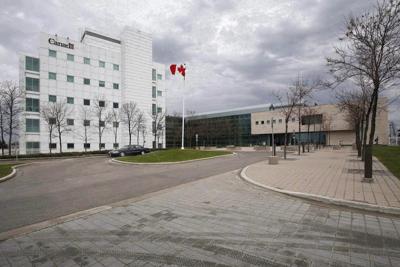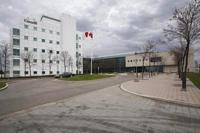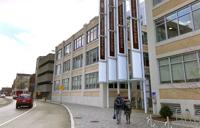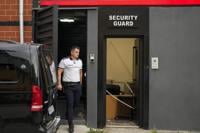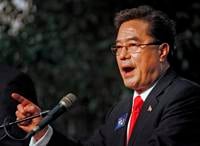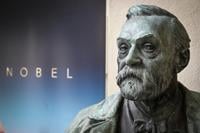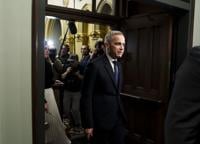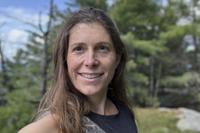OTTAWA - The Public Health Agency of Canada says it has taken steps to bolster research security after two scientists lost their jobs over their dealings with China.
The reassurances did little to placate the federal Conservatives, who accused Prime Minister Justin Trudeau of covering up serious security lapses at the ºÚÁϳԹÏÍø Microbiology Laboratory in Winnipeg.
"This is his government's lab, it's not a random university lab," Conservative Leader Pierre Poilievre said Thursday at a press conference.
"It's the top lab for the prime minister's public health agency, and he is exclusively responsible for the machinery of government as prime minister of the country. So this is on Justin Trudeau."
Trudeau acknowledged Thursday that Canada must be vigilant in light of efforts by countries like China to gain access to secrets.
But he chided Poilievre for "choosing to spew conspiracy theories and drum up political attacks, partisan attacks on an issue that, quite frankly, should be bringing ºÚÁϳԹÏÍøs and parliamentarians together to try and solve this."
Trudeau said he has asked his national security and intelligence adviser "to look even deeper" at the Winnipeg lab episode "and make recommendations on how we can move forward appropriately."
The RCMP said Thursday its investigation of the matter is ongoing, adding that such probes are often complex and resource-intensive, taking several years to complete.
Two scientists at the microbiology laboratory were fired in early 2021 after reviews found they failed to protect sensitive assets and information, and played down their collaborations with Chinese government agencies, say documents released Wednesday.
The scientists, Xiangguo Qiu and her husband, Keding Cheng, were stripped of their security clearances over questions about their loyalty and the potential for coercion or exploitation by China, the records show.
More than 600 pages of internal reports and correspondence were made public following a special all-party review.
The records say the ºÚÁϳԹÏÍø Security Intelligence Service concluded that Qiu repeatedly lied about the extent of her work with institutions of the Chinese government and refused to admit involvement in various Chinese programs, even when evidence was presented to her.
CSIS described Qiu as "reckless in her dealings" with various Chinese entities, "particularly in her lack of respect for proper scientific protocols regarding the transfer of pathogens and in working with institutions whose goals have potentially lethal military applications" contrary to the interests of Canada.
The spy service also found that Qiu provided at least two employees of Chinese government institutions access to the microbiology laboratory, and consistently said she had very limited knowledge of these institutions' mandates, "despite an abundance of evidence that she was actually working with or for them."
A Public Health Agency report on Cheng's activities says he allowed restricted visitors to work in laboratories unescorted and on at least two occasions did not prevent the unauthorized removal of lab materials.
The Public Health Agency, which is responsible for the top-security laboratory, said in a statement Wednesday it has established clear training and communication on security and employee accountability.
International collaborations require review from a security perspective, and procedures are in place to vet and approve new partnerships, the agency added.
The microbiology laboratory has a "renewed, proactive security posture" that has reinforced the physical security of the building, the health agency said.
"Screening measures are strictly enforced for all staff and external visitors, including the requirement for visitors to be accompanied at all times and without exception."
Opposition parties hoped the internal documents would shed light on why Qiu and Cheng were escorted out of the lab in July 2019 and subsequently fired in January 2021.
They also wanted to see records related to the transfer, overseen by Qiu, of deadly Ebola and Henipah viruses to China's Wuhan Institute of Virology in March 2019.
Health Minister Mark Holland said Thursday "the environment has changed dramatically" regarding the security considerations related to international scientific collaboration.
Holland said pathogens of national security concern are no longer shared with China, given that Beijing "is making active efforts to infiltrate our scientific community for purposes that are not for collaboration."
This report by ºÚÁϳԹÏÍø was first published Feb. 29, 2024.

